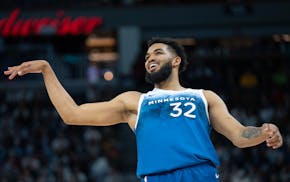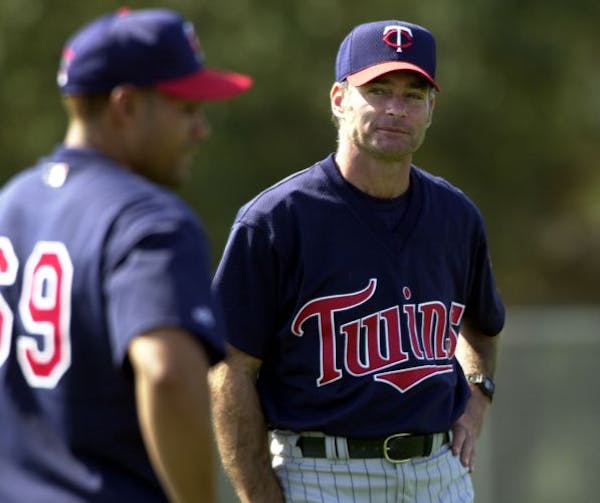The Twins were in Fenway Park for a Friday night game on Aug. 2, 1996. They were trailing 7-5 entering the eighth inning and were in the midst of a rally.
Paul Molitor walked on a wild pitch. He took a hard turn at first base as Boston catcher Mike Stanley retrieved the ball at the backstop screen.
"I thought the play there was to go for second and force Stanley to make that long throw," Molitor said. "If I had done that and Stanley had thrown, Rich Becker could have walked home from third. But there was only one out. If anything bad happened with me going to second, I didn't want to take us out of the inning."
Molitor's decision to stay at first proved astute, as the Twins rallied for five runs. Later, Dan Naulty coughed up the lead in the bottom of the ninth, but that's another issue.
The point is, Molitor always has been given credit for having fantastic instincts for the game — particularly running the bases. Yet, what was on display on that long-ago night in Boston was more awareness than a natural gift.
"You don't have to have good speed to be a good baserunner," Molitor said then. "The most important thing is to run through the possibilities in your mind beforehand. What's the game situation … the outs, the score, the pitcher? Is it a lefthanded-throwing center fielder or righthanded?
"You have to be aware of those things when you're deciding to be aggressive."
A year later, Molitor was in his second season with the Twins, and the team's decline had become more precipitous. That had no impact on the awareness that Molitor, closing in on his 41st birthday, brought to his game.
The Twins were playing against the Brewers in County Stadium. Milwaukee catcher Kelly Stinnett tossed a return throw over the head of 6-foot-7 pitcher Jeff D'Amico. Molitor reacted instantly and scored from third to give the Twins a lead.
"We were speculating after the game on how many players would have been sauntering back to third base with their back turned when that happened," Twins manager Tom Kelly said then.
"Paul Molitor scored that run because he is ready to play. When the play is over, it's over. That play wasn't over. The ball was not back in the pitcher's glove."
Awareness. Not instinct. And awareness can be gained, if ballplayers are willing to listen.
Molitor officially becomes the 13th manager in Twins history when he is introduced at a news conference Tuesday morning at Target Field.
He cannot input the instincts for baseball to others that he brought with him from the dirt of St. Paul playgrounds. He will not find the powerful forearms and wrists that allowed him to snap the bat for 3,362 hits (including postseason) in the big leagues on many hitters.
What he can offer to those players is all that can be gained on a big-league diamond with awareness — understanding if the risk is worth the reward, realizing a play doesn't end until the ball is in the pitcher's glove.
Molitor has talked about such matters with players coming through the Twins organization for most of the past decade. He had that role again as a coach on Ron Gardenhire's staff in 2014, a fourth consecutive lost season that cost Gardy his job.
Now Molitor has a chance to push for awareness as a voice of authority, as the boss, not as an adviser dropping into Fort Myers, Fla., or Rochester, N.Y., for a week at a time.
Twins followers have a right to be skeptical, because no matter the commitment to a brighter way of playing baseball, it isn't going to help Molitor succeed if General Manager Terry Ryan fails to make a drastic change in this team's pitching assets.
What is a nonsensical rap on this hire is the old idea that Molitor was such a great player that he will have a tough time relating to lesser players. We've heard that about previous Hall of Famers, but this is not a baseball man who is going to look at a player and give up when he sees imperfections.
From conversations past, most during the three years at the end of his career with the Twins, I found a baseball man more inclined to help than to be overwhelmed by frustration.
That help will continue as long as a player is willing to listen and gain awareness. If he chooses instead to keep sauntering back to third with his back turned, then I'm guessing a different, harder edge will appear with Paul Molitor as a boss.
Patrick Reusse can be heard 3-6 p.m. weekdays on AM-1500. • preusse@startribune.com

Reusse: Taylor's story. 'I just bought the Minnesota Timberwolves.'

Reusse: Back from injury, Towns doesn't have to carry load


